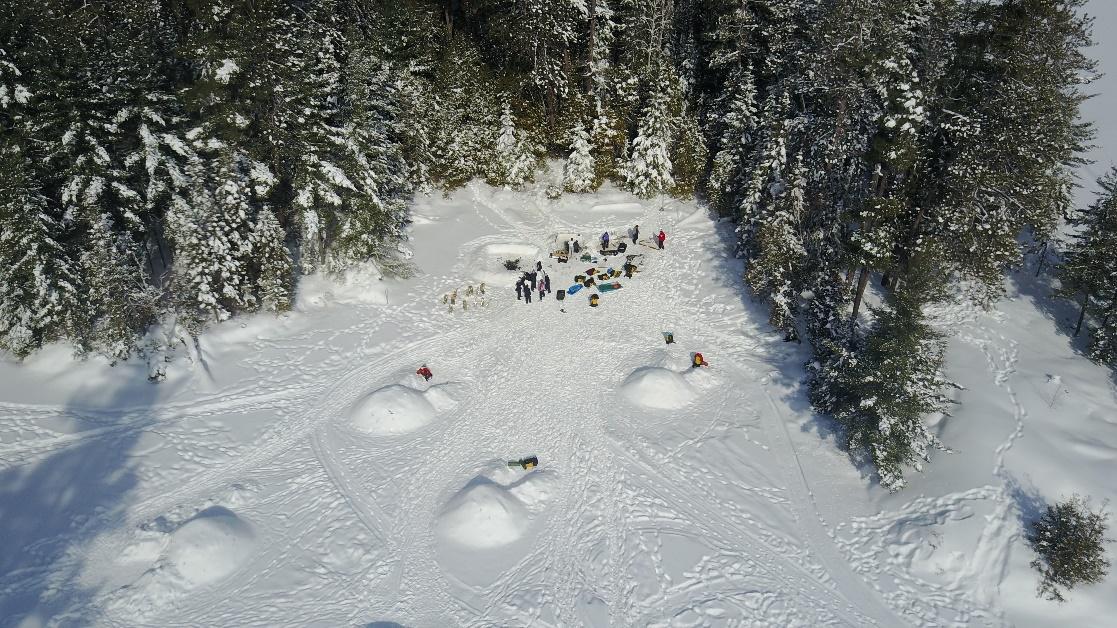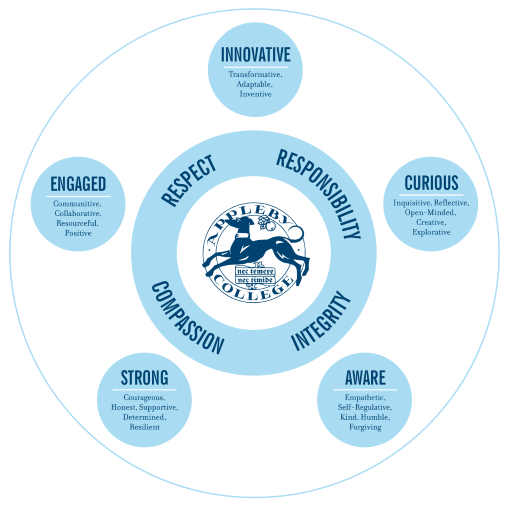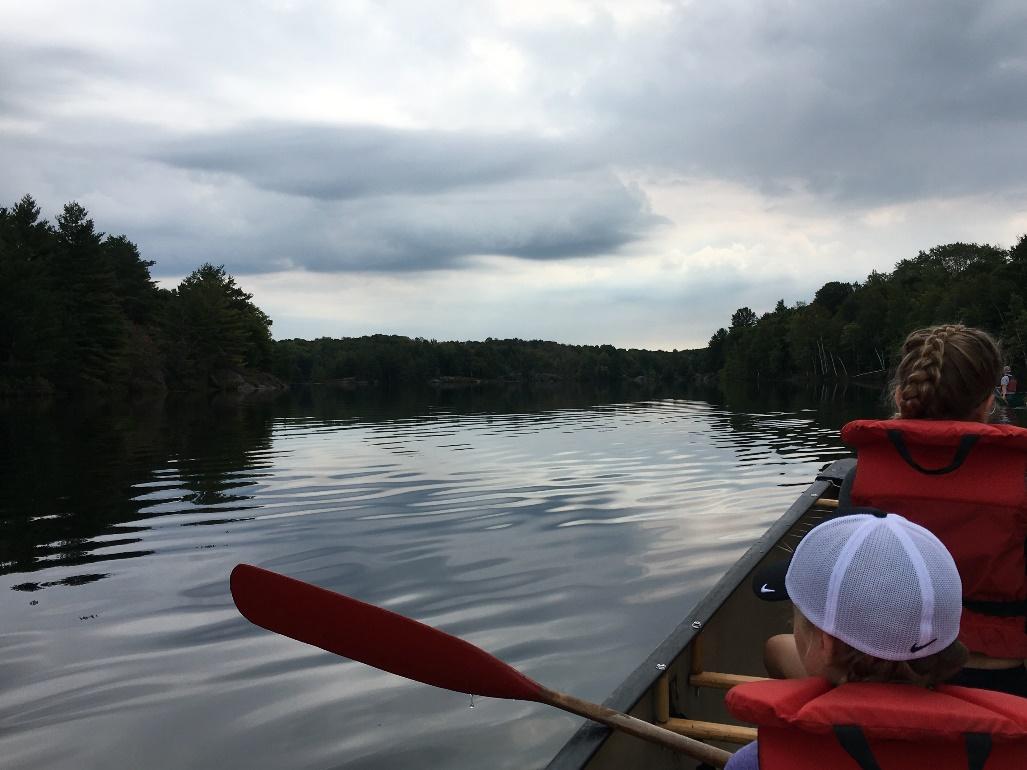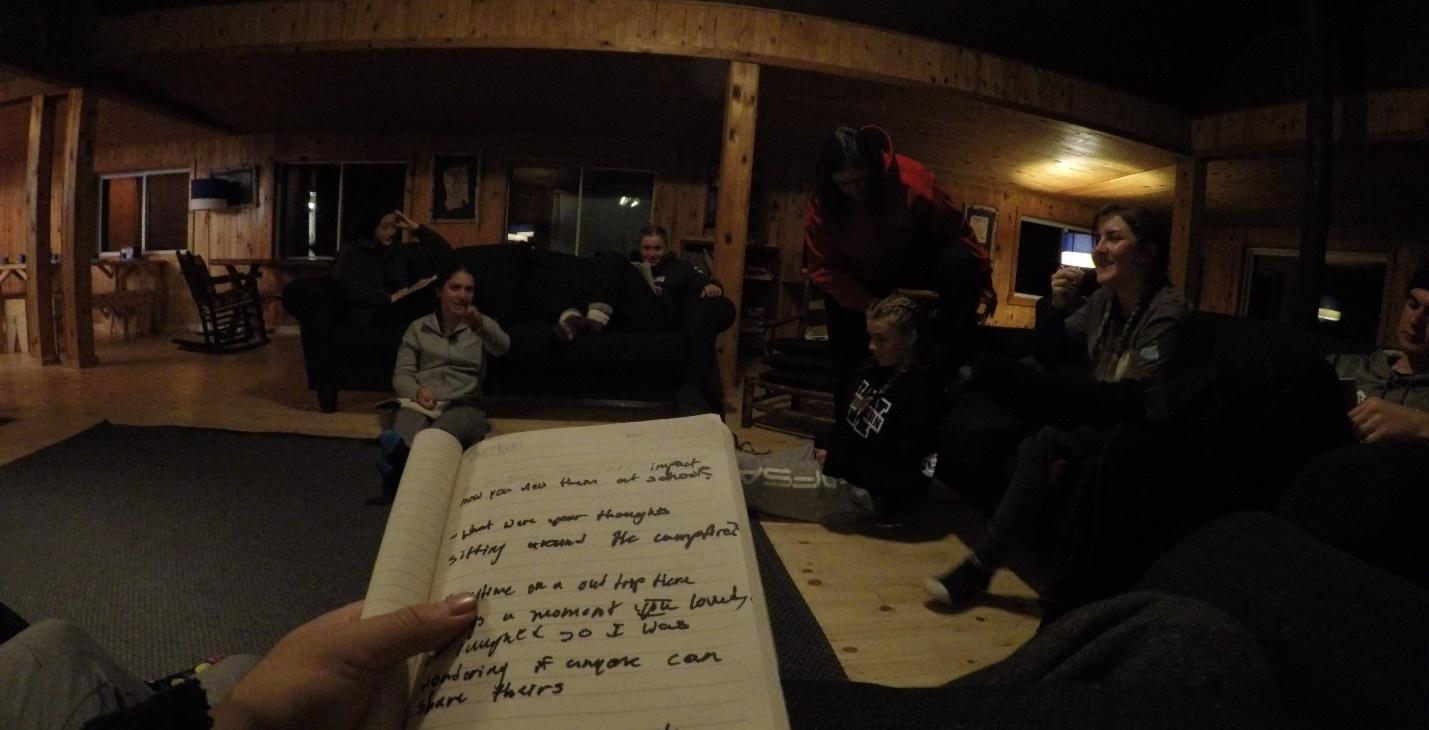Members in Action: Appleby College
Bringing SEL into Reflective Practices within Outdoor Education
By: Patrick O’Sullivan, Assistant Director of Outdoor Education and Rob McGuiness, Assistant Head of School, Global Education
 Winter Camping Site for Appleby's 10th Grade Outdoor Ed Trip Winter Camping Site for Appleby's 10th Grade Outdoor Ed Trip
Appleby College has long held a strong belief in the power of Outdoor and Experiential Education in our students. It enhances confidence, creates more responsibility and develops skills that help them beyond their experiences.
Whether it is a bad rain storm, high winds while canoeing, walking through a snowstorm, or even just leaving their phones behind, all students on outdoor trips face adversity. Through this adversity, the support of their peers builds connections and helps them to grow, and genuine and deliberate reflection can be the element that turns the growth into transformation. At Appleby College, we are deliberately integrating a Social Emotional Learning (SEL) framework into our reflective practices to do just that, transform the experience for our students, and consequently see widespread benefits across all of our school programs.
Social Emotional Learning (SEL) Framework at Appleby
 Appleby College SEL Framework Appleby College SEL Framework
Appleby College’s SEL framework is built around our school’s four core ethical values of Respect, Responsibility, Compassion, and Integrity. Upon this foundation, social-emotional learning at Appleby works to develop students who are Aware, Curious, Engaged, Innovative and Strong. The SEL framework helps students realize what it means to have a growth mindset and to recognize the strengths they possess. This is not a revolutionary practice, as most experiential educators will already use many of these techniques in reflections. However, by being more deliberate about the integration of SEL, we believe we can
In order to understand the reflective practices that we incorporate, it helps to understand our Outdoor Education program. At Appleby, there is a compulsorily trip for all students from grades 7-10 and then in grades 11 and 12, we have elective outdoor leadership courses (full-year, academic credit based) through which students attend trips with other grades and help to facilitate the experiences. Each trip has a slightly different goal, and they all occur in very different environments. At the end of these trips, students participate in meaningful reflections to bring the learning home with them.
To illustrate the power of these reflections, we’ll focus on the two trips where SEL is most deeply integrated: the Grade 7 program at the Ontario summer camp and the Grade 10 program at Appleby’s S. Bruce McLaughlin Northern Campus in Temagami. These examples showcase the progression of reflections from our introduction trip to our final mandatory trip.
An Intro to Outdoor Education: 7th Grade Program
 Grade 7 Students Canoeing Grade 7 Students Canoeing
The Grade 7 introduction to Outdoor Education gives students the opportunity to connect with their new peers in a fun and novel learning environment. The program is a three-day experience at an Ontario summer camp with the goals of introducing outdoor ed, bringing the grade together, and having fun. There are two guided reflections around the trip: one during the trip and another upon returning back at school.
The reflection during the trip is a simple group reflection around a fire to get the students talking and comfortable with reflective discussion. We begin with simple prompts using SEL language from the beginning, such as communication, respect, mindset, and courage. As the reflection transitions, the prompts become more complex and we discuss topics such as failure and how failure is an opportunity for learning. Utilizing the SEL language plants a seed that will hopefully flourish throughout the students’ time at Appleby. They can refer back to it and support each other in difficult times no matter the setting.
Upon return to school, students participate in a written reflection prompting introspection around self-growth and leadership development on their experience. Teachers can also utilize this document to send back to a student for reference if they have feelings of self-doubt throughout the year.
Culminating Reflection: 10th Grade Program
 Appleby Outdoor Leadership Students Prepping a Reflection Appleby Outdoor Leadership Students Prepping a Reflection
Our 10th-grade students participate in a final mandatory outdoor education experience on a 6-day winter camping trip which is a highlight of our Outdoor Education program. This culminating experience focuses on leadership, winter camping skills, resiliency, and mindset.
The challenges students face due to the cold weather and unfamiliarity with the situation provide an amazing learning opportunity. In the SEL framework, we focus on the elements of Curious and Aware. Under Curious, we stress the importance of an open mind and the opportunity to be an explorer. They will face challenges while out in the cold, but with the right attitude, these are minuscule compared to the learning opportunities they experience. When looking at the Aware category, we want students to have the goal of thriving, not surviving. We work together to overcome challenges and look to each other for strength. Students learn to recognize the benefits and privileges they have at home and learn to recognize the challenges many others face.
The most meaningful reflection comes at the conclusion of the trip which is facilitated by our outdoor leadership students. These grade 11 and 12 students who act as the outdoor leaders on the grade 10 trip take full ownership over the trip and the reflection. By removing the teacher from the reflection, it eliminates the feeling of a “correct” answer, and we get more honest comments. The outdoor leadership students utilize the SEL framework they learned through their class in reflection. For example, a simple question such as “What was the greatest challenge that you faced and what did you do to overcome it?” may seem like a standard reflection question, but the student leaders steer the discussion within our framework. A student may be Strong because they demonstrated resiliency or because they supported a peer. They can be Engaged as they overcame a challenge as a community, or they remained positive in the face of adversity. Within the answers students give, every SEL characteristic can be found. Creating the connection back to the SEL framework allows students to quickly see the connection back to their learning at home.
While utilizing the SEL framework is a work in progress, we’ve seen a positive impact. By being more deliberate with our practices, we’ve been able to connect our experiences back into the classroom and to the student’s everyday life. This simple change of practice, we help students realize a growth mindset, be more positive and help them to complete the experiential education cycle by bringing their learning home with them at the end of an experience.
Back to the Summer 2019 ISEEN Field Notes
|